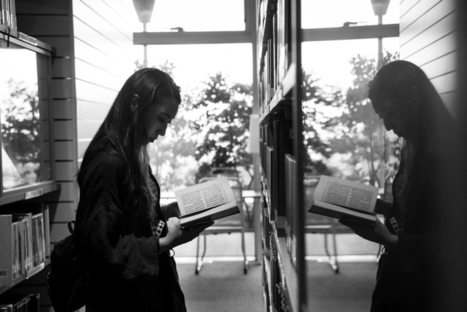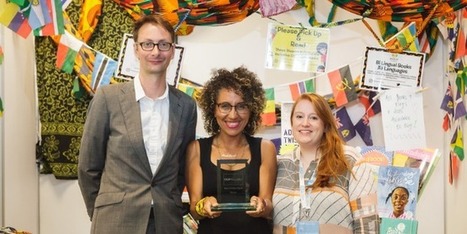In October 2020, the authors accepted an invitation to participate in an experimental collaboration observing an equitable, global, and inclusive process. Inspired by an Inclusive Classroom webinar at the University of Illinois at Urbana-Champaign and the shared Decolonizing Checklist, the authors considered our tasks: 1) to develop a checklist or brief guide that is international in scope to help librarians worldwide develop their own or other educators’ instructional materials, that is antiracist or inclusive, and 2) to publish the checklist/guide and a reflective essay of the process.
Get Started for FREE
Sign up with Facebook Sign up with X
I don't have a Facebook or a X account

 Your new post is loading... Your new post is loading...
 Your new post is loading... Your new post is loading...
Current selected tag: 'diversity and libraries'. Clear
9.30 - 10.00 Registration 10.00 Welcome and housekeeping 10.15 - 11.00 Group Discussion. 11:00-11:40 Presentation 11.00 - 11.40 Decolonising LSE Collections - Kevin Wilson (London School of Economics) 11.40 - 11.50 Tea break 11:50 - 13:10 Presentations 11.50 - 12.30 Broaden my Bookshelf: working with the University of Huddersfield SU to tackle the attainment gap -…
Elizabeth E Charles's insight:
Presentations at this conference have been uploaded to this site. Event held on 24 January 2020 at Goldsmiths University.
We all have an original nature, with our own authentic wants and needs. We act spontaneously. Then we meet other people. Very soon, who and what we want to become and even who we believe ourselves to be becomes influenced or even defined by others. Such internalised messages can become self-limiting, and the friction between the self-concept imposed from without and a person’s true nature within can be painful and may even result in mental ill-health (Dykes, Postings, Kopp, & Crouch, 2017, p. 179). For repressed groups, such as women and black, Asian and minority ethnicity (BAME) people, the messages received about who a person is and what they should be are often harmful and repressive. These groups are systematically shown that that they do not matter to society, not least through the lack of BAME role models and the abrogation of their cultural heritage. BAME women suffer intersectional repression and are among the hardest hit. |
By Naomi L. A. Smith, Assistant Library Manager and part-time Library student at UCL (@LibrarygirlN). This blog post is based on an essay originally produced for INST0021 Managing Information Organisations module for the MA Library and Information Studies at UCL. Although Black Lives Matter (BLM) is making more and more of us re-question our privilege and think about discrimination and Western power structures, this exploration needs to also extend to our workplaces. Librarians must recognise that rather than challenging systems of oppression, academic libraries have historically contributed to it by favouring white cisgender male authors at the expense of all others. Similarly, the membership figures of the Chartered Institute of Library and Information Professionals (CILIP) confirm there is under-representation of Black, Asian and Minority Ethnic (BAME ) staff in the library and information science sector.
Elizabeth E Charles's insight:
A great overivew of current state of play in academic libraries and the LIS sector, with a call to start implementing changes. If not now - when?
The term ‘decolonizing the curriculum’ is of high currency in higher education in the UK and in local students’ unions at these institutions. This article seeks to give a very brief history and context for why this is fundamental for academic institutions and what role libraries and the scholarly communication sector can play in this movement. I look at why this is so important for black, Asian and minority ethnic (BAME) and othered (otherly minoritized, e.g. disabled, LGBTQ, etc.) students and what steps some libraries have already taken. One of the themes of the UKSG 2019 Conference was ‘diversity and change’; decolonizing the curriculum is exactly that if done correctly. Two presentations from the plenary session provided a good starting point and the article touches on how decolonizing the curriculum may impact research/researchers. It concludes that there is a need for academia to now move past just identifying that there are issues about retention and progression of BAME and othered students and staff, and for both the library and information and scholarly communication sectors to act to address this now.
Elizabeth E Charles's insight:
My article on decolonizing the curriculum, and need for action by librarians, scholarly communication sector and education.
While I am delighted to be here, I have to admit that I thought long and hard about whether to accept the invitation to speak today. I am aware that we’ve heard a lot of voices like mine, that voices like mine can drown out other people's voices, and that really it is time for me, for us at CILIP to stop speaking and start listening. |












